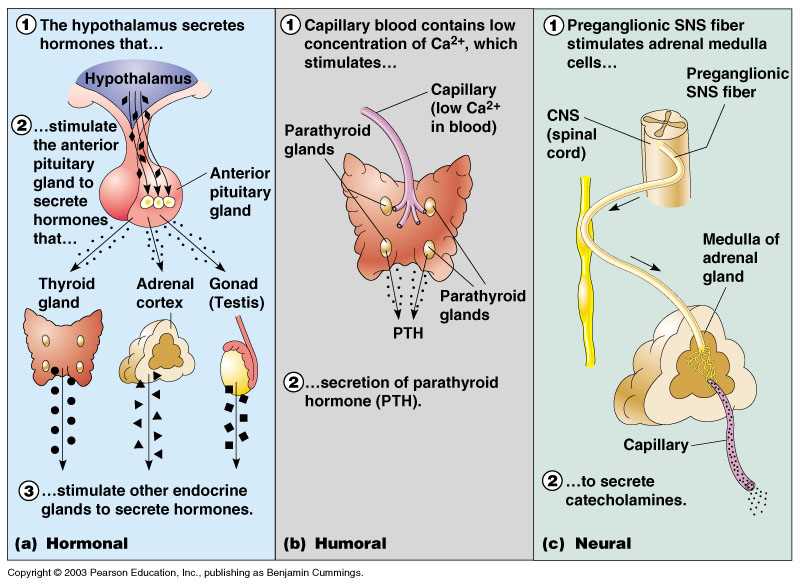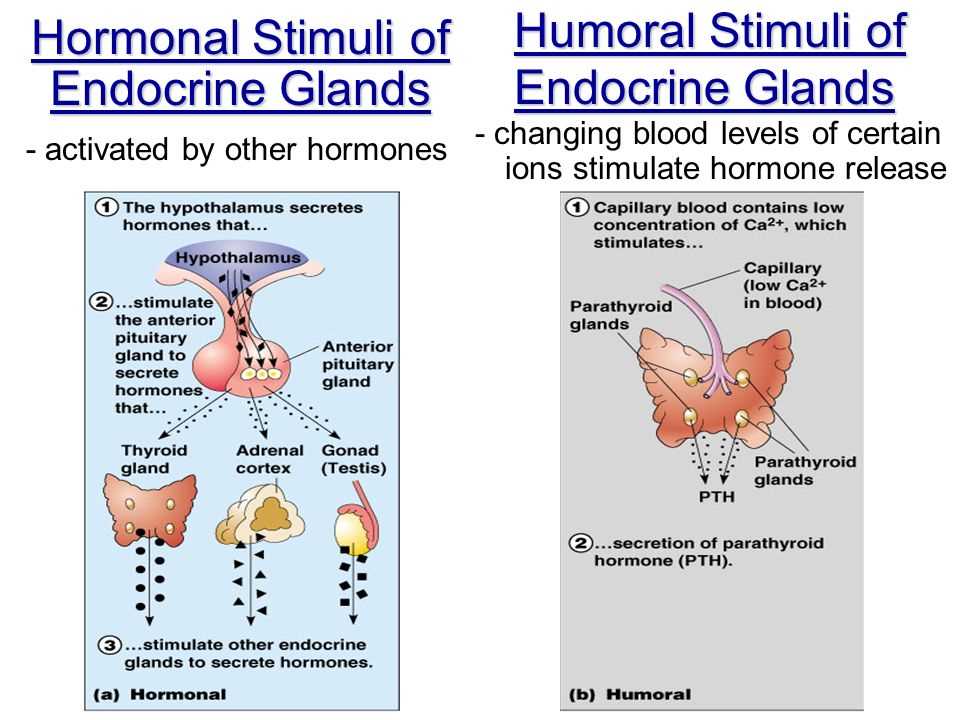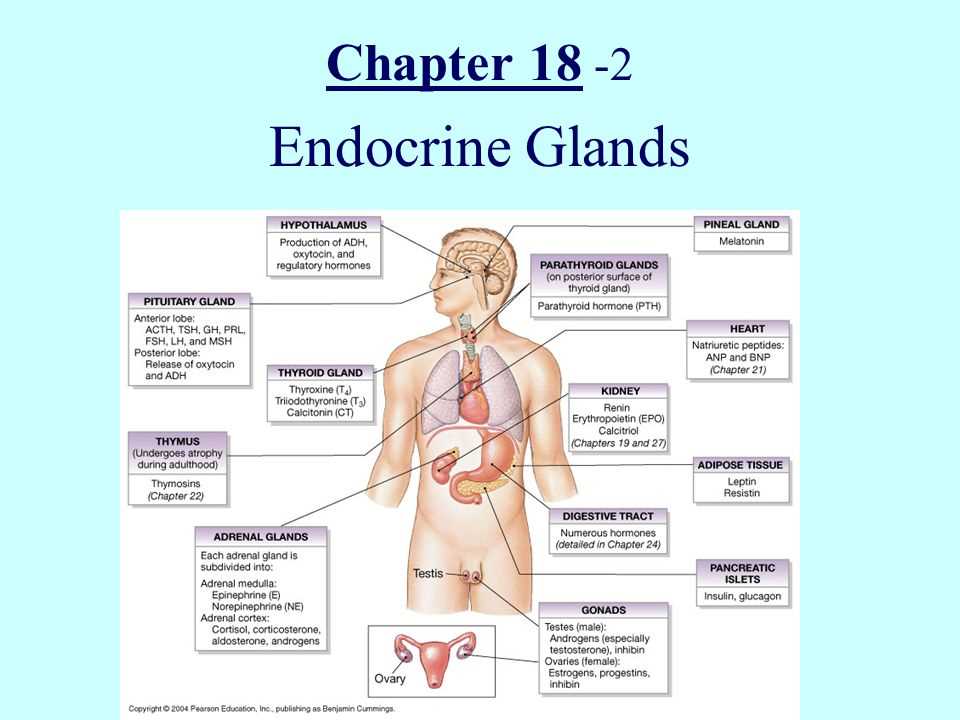
The endocrine system is a complex network of organs and glands that play a crucial role in regulating various bodily functions. This chapter delves into the intricacies of the endocrine system, providing answers to commonly asked questions and shedding light on its importance in maintaining homeostasis.
One of the key topics covered in this chapter is the function of hormones and their role in communication within the body. Hormones, produced by various glands, act as chemical messengers, traveling through the bloodstream to target cells and organs to bring about specific physiological responses. Understanding the functions of different hormones is essential in comprehending the overall functioning of the endocrine system.
Another aspect explored in this chapter is the relationship between the endocrine system and other body systems, such as the nervous system. While the nervous system relies on electrical signals for communication, the endocrine system utilizes hormones to transmit information. The coordination between these two systems is vital for maintaining optimal health and functionality.
Furthermore, this chapter also addresses common disorders and diseases that can arise within the endocrine system. From diabetes to hyperthyroidism, understanding the causes, symptoms, and potential treatments for these conditions is crucial for both medical professionals and individuals seeking to maintain their well-being.
By providing detailed answers to questions about the endocrine system, this chapter aims to enhance knowledge and foster a deeper understanding of this vital bodily system. As readers explore the intricacies of the endocrine system, they will gain valuable insights into its functions, disorders, and the importance of maintaining hormonal balance for overall health and well-being.
Chapter 9: The Endocrine System Answers
The endocrine system plays a crucial role in maintaining homeostasis in the body. It consists of various glands and organs that produce and secrete hormones, which regulate different physiological processes. In Chapter 9, we explore the functioning and interplay of these glands and the hormones they produce.
1. What are the main glands of the endocrine system?
The main glands of the endocrine system include the hypothalamus, pituitary gland, thyroid gland, parathyroid glands, adrenal glands, pancreas, and gonads (ovaries and testes).
2. How do hormones work in the body?
Hormones act as chemical messengers that travel through the bloodstream to target cells or organs, where they bind to specific receptors. This binding triggers a response in the target cells, which can include regulating metabolism, growth and development, reproduction, and maintaining water and electrolyte balance.
3. What are some common endocrine disorders?
- Diabetes mellitus: A disorder characterized by high blood sugar levels due to inadequate insulin production or insulin resistance.
- Hypothyroidism: A condition where the thyroid gland does not produce enough thyroid hormone, leading to symptoms like fatigue, weight gain, and cold intolerance.
- Hyperthyroidism: An overactive thyroid gland that produces excessive amounts of thyroid hormone, leading to symptoms such as weight loss, irritability, and rapid heart rate.
- Addison’s disease: A disorder where the adrenal glands do not produce enough cortisol and aldosterone, resulting in fatigue, low blood pressure, and electrolyte imbalances.
4. How is the endocrine system regulated?
The endocrine system is regulated through a negative feedback mechanism. When hormone levels reach a certain threshold, they inhibit the release of more hormone production. This helps maintain balance and prevent overproduction or underproduction of hormones.
5. How do the hypothalamus and pituitary gland work together?

The hypothalamus produces hormones that control the release of hormones from the pituitary gland. The pituitary gland, often called the “master gland,” then stimulates or inhibits the production of hormones by other endocrine glands in the body.
Understanding the functioning of the endocrine system is essential for comprehending various physiological processes and the management of endocrine disorders. Chapter 9 provides valuable insights into this complex system and its impact on overall health and well-being.
Understanding the Endocrine System: An Overview
The endocrine system is a complex network of glands and organs that produce and secrete hormones, which are chemical messengers that regulate various bodily functions. It plays a crucial role in maintaining homeostasis, coordinating growth and development, and controlling metabolism. It works hand in hand with the nervous system to ensure the proper functioning of the body.
At the core of the endocrine system are the endocrine glands, including the pituitary gland, thyroid gland, adrenal glands, pancreas, ovaries, and testes. These glands secrete hormones directly into the bloodstream, where they are carried to target cells or organs throughout the body. Each hormone has specific target cells or organs that it influences, and together they form a complex communication system.
The endocrine system is regulated by feedback mechanisms that ensure hormone levels remain within a narrow range. For example, if blood sugar levels are too high, the pancreas releases insulin to help bring them back to normal. If blood calcium levels are low, the parathyroid glands release parathyroid hormone to stimulate the release of calcium from bones into the bloodstream.
Disruptions in the endocrine system can lead to various disorders and diseases. Hormonal imbalances can cause conditions such as diabetes, hypothyroidism, and adrenal insufficiency. In addition, tumors or abnormalities in the endocrine glands can lead to the overproduction or underproduction of hormones. Treatment for these conditions often involves hormone replacement therapy or surgical interventions.
Overall, understanding the endocrine system is crucial for maintaining optimal health and functioning of the body. By recognizing the importance of hormones and their role in regulating various bodily processes, healthcare professionals can diagnose and treat endocrine disorders effectively. Ongoing research in this field continues to provide insights into the intricate workings of the endocrine system, leading to improved diagnostic techniques and treatment options for patients.
The Importance of Hormones in the Endocrine System
The endocrine system is a complex network of glands that produce and secrete hormones, which play a crucial role in regulating various bodily functions. Hormones act as chemical messengers, carrying signals from one part of the body to another, and are essential for maintaining homeostasis.
One of the primary functions of hormones is to help regulate metabolism. Hormones such as insulin, produced by the pancreas, play a vital role in controlling blood sugar levels. Insulin helps cells absorb glucose from the bloodstream, allowing the body to use it as a source of energy. Imbalances in insulin levels can lead to conditions like diabetes, where the body is unable to regulate blood sugar effectively.
Hormones also play a significant role in growth and development. Growth hormone, secreted by the pituitary gland, stimulates the growth of bones and tissues. During puberty, sex hormones like estrogen and testosterone are responsible for the development of secondary sexual characteristics and the maturation of reproductive organs.
The endocrine system also influences the body’s response to stress. The adrenal glands produce cortisol, commonly known as the stress hormone, which helps the body respond to stressful situations. Cortisol increases blood sugar levels, suppresses the immune system, and regulates the body’s metabolism in times of stress.
In addition to these functions, hormones also regulate mood, sleep, and overall well-being. Hormones like serotonin and dopamine, known as “feel-good” hormones, have a significant impact on mental health and emotional well-being. Imbalances in these hormones can contribute to conditions like depression and anxiety.
Overall, hormones play a vital role in maintaining the body’s balance and ensuring optimal functioning. Imbalances or dysregulation in hormone production can lead to a variety of health issues and disorders. Understanding the importance of hormones in the endocrine system can help guide medical treatments and interventions for hormone-related conditions.
How the Endocrine System Works
The endocrine system is a complex network of glands that produce and secrete hormones, which are chemical messengers that regulate various functions and processes in the body. These hormones are released into the bloodstream and travel to target cells and organs, where they exert their effects.
At the core of the endocrine system are several major glands, including the hypothalamus, pituitary gland, thyroid gland, parathyroid glands, adrenal glands, pancreas, and ovaries or testes. Each gland produces specific hormones that play crucial roles in maintaining homeostasis and coordinating bodily functions.
The hypothalamus, located in the brain, acts as the control center of the endocrine system. It receives signals from various areas of the body and responds by releasing hormones that stimulate or inhibit the production of other hormones. The hypothalamus also regulates the pituitary gland, often referred to as the “master gland,” which secretes hormones that control the function of other endocrine glands.
The thyroid gland, located in the front of the neck, produces thyroxine and triiodothyronine, which regulate metabolism and energy production. The parathyroid glands, embedded in the thyroid gland, produce parathyroid hormone, which helps regulate calcium levels in the blood. The adrenal glands, located on top of the kidneys, produce hormones such as cortisol, adrenaline, and aldosterone, which control stress response, blood pressure, and electrolyte balance.
The pancreas is both an endocrine and exocrine gland. Its endocrine function involves the production of insulin and glucagon, which regulate blood sugar levels. The ovaries and testes produce sex hormones, such as estrogen, progesterone, and testosterone, that play essential roles in sexual development and reproduction.
Overall, the endocrine system works in coordination with the nervous system to maintain homeostasis and ensure the proper functioning of various bodily processes. It plays a vital role in growth, metabolism, energy production, reproduction, and response to stress. Imbalances or dysfunctions within the endocrine system can lead to various disorders and health conditions.
Common Disorders of the Endocrine System
The endocrine system is a complex network of glands that produce and secrete hormones, which regulate various bodily functions. However, like any other system in the body, the endocrine system can be affected by certain disorders that can disrupt hormone production and regulation. These disorders can have a significant impact on an individual’s overall health and wellbeing.
One common disorder of the endocrine system is diabetes mellitus. This chronic condition occurs when the pancreas does not produce enough insulin or when the body cannot effectively use the insulin it produces. As a result, blood sugar levels become elevated, leading to symptoms such as frequent urination, excessive thirst, and unexplained weight loss. Diabetes can be managed through lifestyle changes, medication, and insulin therapy.
Thyroid disorders
The thyroid gland plays a crucial role in regulating metabolism, body temperature, and energy levels. Two common disorders of the thyroid gland are hypothyroidism and hyperthyroidism. Hypothyroidism occurs when the thyroid gland does not produce enough thyroid hormone, leading to symptoms such as fatigue, weight gain, and depression. On the other hand, hyperthyroidism is characterized by an overactive thyroid gland, resulting in symptoms such as weight loss, rapid heartbeat, and anxiety. Both conditions can be managed with medication and lifestyle changes.
Adrenal gland disorders
The adrenal glands produce hormones that help regulate stress response, blood pressure, and electrolyte balance. One common disorder of the adrenal glands is Addison’s disease, which occurs when the adrenal glands do not produce enough cortisol and aldosterone. Symptoms of Addison’s disease include fatigue, weight loss, and low blood pressure. Another adrenal gland disorder is Cushing’s syndrome, which is characterized by an overproduction of cortisol. Symptoms of Cushing’s syndrome include weight gain, facial rounding, and increased blood pressure. Treatment for adrenal gland disorders often involves hormone replacement therapy.
Reproductive hormone disorders

Disorders of the reproductive hormones can affect both males and females. In females, polycystic ovary syndrome (PCOS) is a common disorder that can cause irregular menstrual periods, excess hair growth, and fertility problems. In males, hypogonadism is a condition characterized by low testosterone levels, leading to symptoms such as decreased sex drive, fatigue, and infertility. Treatment for reproductive hormone disorders often involves hormone replacement therapy and lifestyle changes.
In conclusion, common disorders of the endocrine system can have significant effects on an individual’s overall health and wellbeing. It is important to seek medical attention if you experience any symptoms or suspect that you may have an endocrine disorder. With proper diagnosis and treatment, many of these disorders can be managed effectively to improve quality of life.
Diagnosing Endocrine System Disorders
The endocrine system plays a crucial role in maintaining the overall balance and functioning of the body. When there is an imbalance in the production or regulation of hormones, it can lead to various disorders. Diagnosing these disorders requires a comprehensive approach, involving medical history review, physical examination, and different tests.
Medical history review: A thorough medical history review is essential for diagnosing endocrine system disorders. The healthcare provider will inquire about symptoms, duration, severity, and any factors that might be contributing to the condition. They will also ask about family history, as some disorders can be hereditary.
Physical examination: During a physical examination, the healthcare provider will assess the patient’s overall health and look for any physical signs or abnormalities that might indicate an endocrine disorder. They may check the patient’s height, weight, blood pressure, and perform various examinations based on the specific symptoms.
Hormone testing: Hormone testing is a fundamental component of diagnosing endocrine system disorders. Blood or urine samples are collected and analyzed to measure hormone levels. This can help identify deficiencies or excesses of certain hormones, which can indicate a specific disorder.
Imaging tests: In some cases, imaging tests such as ultrasounds, CT scans, or MRIs may be performed to visualize the endocrine organs and assess their structure and function. These tests can help identify tumors or abnormalities that may be causing hormonal imbalances.
Stimulation or suppression tests: Stimulation or suppression tests may be conducted to evaluate the response of the endocrine system to certain stimuli. These tests involve administering a specific substance or medication and monitoring how the body reacts. This can help diagnose disorders such as adrenal insufficiency or hyperthyroidism.
Genetic testing: In certain cases, genetic testing may be recommended to identify any underlying genetic mutations or abnormalities that may be causing the endocrine disorder. This can be particularly useful in diagnosing hereditary disorders or conditions with a known genetic component.
Overall, diagnosing endocrine system disorders requires a multidisciplinary approach involving medical history review, physical examination, hormone testing, imaging tests, stimulation or suppression tests, and genetic testing. The results of these diagnostic methods help healthcare providers determine the cause of the disorder and develop an appropriate treatment plan.